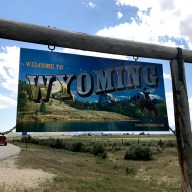Trying to advance your career can be a frustrating thing. You may have a goal in mind of where you want to end up professionally, but it’s those little damaging ingrained habits you have that get in the way of you achieving that goal.
In a recent study performed by Hogan Assessment Systems, they found that “67% of talented people will be demoted, fired or simply plateau” in their careers. That’s a pretty staggering number when you really think about it.
We recently spoke with Carter Cast, the former CEO of Walmart and Professor at Northwestern’s Kellogg School of Business, whose new book,“The Right (and Wrong) Stuff” outlines the 5 different character traits that might derail you on the way to a successful career.
We had him shed a little light on each to help us all understand what we might be doing wrong in our professional lives.
1. Captain Fantastic
Listen, it’s okay to be proud of yourself for getting hired at your current job. But being so confident that you think that you don’t have anymore room for improvement can be an extremely slippery slope. Cast likes to call this personality the “Captain Fantastic”. You know the type, the guy who would check you against the wall on his quest to make it into the corner office.
“There are pieces of captain fantastic in a lot of us,” says Cast, “sometimes we don’t listen well enough and we alienate people. It’s interpersonal issues often lead by poor listening skills and unbridled ego-drive.”
2. The Solo Flyer
The “Solo Flyer” is someone who may have been promoted to some sort of leadership role as a result of good performance on the job. But once they get this position, they refuse to let anyone else take on any important projects. They feel like all of the success of the company rides on their shoulders and they can’t trust anyone else to help them out.
“They try to fish instead of leading their team to fish,” explains Cast, “they feel like all of the ideas have to come from themselves.”
3. Version 1.0
This person is someone who refuses to adapt to their surroundings. This could apply to both not willing to learn new company-wide software programs or take instruction from a new boss with a different perspective than your old boss.
To be successful in business you have to be able to roll with the punches in a rapidly changing world. Otherwise, you will just be an outdated employee from a time your industry has long forgotten. Hence the title: “Version 1.0”.
4. The One-Trick Pony
The “One-trick Pony” is, as Cast describes them, someone who limits their professional mobility by only being really good at one thing. Cast explains that these people are “often viewed as one dimensional and non-strategic,” adding that because they are unable to bring a broad set of skills to the table they are usually unable to “connect the dots in seeing how all of the pieces of the puzzle fit together in an organization. So they top out at a certain level because they’re too narrow.”
5. Whirling Dervish
The last character trait, the “Whirling Dervish”, is someone “who is often really talented, really creative and has a lot of ideas but they have a hard time focussing and prioritizing.” Cast characterizes these individuals as people who will say yes to anything they are asked to do so “they over commit and underdeliver.” People in offices usually end up distancing themselves from the “Whirling Dervishes” because generally break their promises because they are spread far too thin.
So if one of these character traits sounds familiar to you, how can you break free of your horrible work habits and further your career? As Cast sees it, it’s as easy as taking bad criticism from your bosses and being proactive while learning from your mistakes. None of us are perfect! But by having a certain amount of self-awareness to these flaws you can make quick productive changes in the way you conduct yourself at work each day.



















